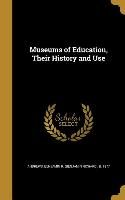How to Talk to Human Beings: Communicating Critically and Constructively with Difficult Urban Students
BücherAngebote / Angebote:
Please check out more of our related titles at thePGI.org/global-press!In the preface of his brilliant bestseller 48 Laws of Power, Robert Greene explained something apparently unknown to most urban teachers: "Emotions cloud reason, and if you can't see the situation clearly, you cannot prepare for and respond to it with any degree of control. Anger is the most destructive of emotional responses, for it clouds your vision the most." I would argue that frustration is the second most destructive emotional response. They both have "a ripple effect that invariably makes situations lesson controllable." Moreover, it makes teacher-student communication virtually impossible. And without communication, teaching and learning cannot actually occur. Nevertheless, go to classrooms in the non-gentrified areas of cities like Atlanta, Detroit, Baltimore, Memphis, Birmingham, and New Orleans, and guess what you'll see: a bunch of angry and frustrated teachers-and not much communication at all. You may see some yelling, some lecturing, some threatening, some preaching, some "talking to, " some "taking over, " some "yes I heard you, " some "no I'm not sleep, " even straight silence, but actual communication is ridiculously rare. There is a communication gap in today's urban classroom. I have patterned this book after Richard Carlson's phenomenal work, Don't Sweat the Small Stuff. In it are fairly simple strategies urban teachers can use to ensure critical and constructive communication with difficult students in their classrooms by maximizing their control over emotions like anger and frustration, as well as fear, alienation, disappointment, and even love. I believe that the key to effective classroom management is how you communicate with your difficult students. Honestly, most of these strategies are very simple and largely commonsensical (with a little basic psychology), but you'd be surprised how regularly common sense and simplicity are lost in the flood of anger and frustration. Teaching is hard, teaching difficult urban students is harder. To be successful, Chopra counseled that "you must find the place inside yourself where nothing is impossible." It is here where you won't have to ask whether or not a difficult student is actually unsalvageable. It is here where you'll find the patience necessary to communicate critically and constructively with difficult urban students, successfully. The following chapters are included:1. The "I (the Author) Am Not Claiming to Be Perfect" Disclaimer2. Rule #1: The only person whose behavior you can control is you.3. I know you can read, but are you emotionally illiterate? 4. Why do you care about these students? 5. How am I supposed to teach people who don't want to learn?6. Use your "inner Hulk."7. Head like a brick? 8. Sometimes we just plant seeds.9. Never jeopardize the relationship.10. Know your emotional ledge. 11. Don't sweat all the small stuff at the same time, prioritize your criticism.12. Attack the issue, not the student. 13. Offer choices and consequences, not confrontation.14. To be or not to be (sarcastic, sometimes): The risk and reward of constructive sarcasm. 15. Laugh with your students, never at them.16. Be silent, at least momentarily. 17. Inferiority should not be normal(ized). 18. Are you listening (or just talking)?19. Are you unconsciously racist? 20. Why do we to teach the poor so poorly? 21. So, what exactly did you expect? 22. Show them you really care with conscientization. 23. But can they all be saved? For more information on this title or to check author availability for professional development, please contact Zakia Gibson at 313-355-0952 or zgibson@pathwaysinstitutes.org.
Folgt in ca. 15 Arbeitstagen




